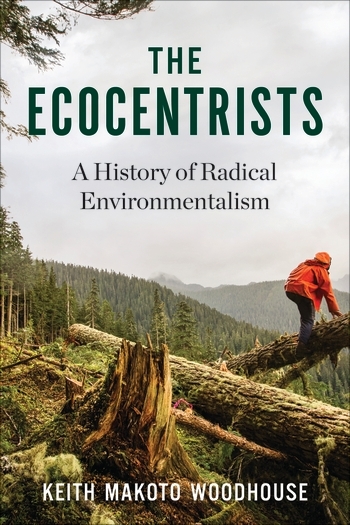Scientific American Interviews Michael E. Mann
“We’ve lost three years to do something about climate change, and that’s a huge opportunity cost. Each year we wait, it gets that much more difficult to stabilize carbon dioxide concentrations below levels that might very well be dangerous. I think that [Climategate] was a crime against humanity. It’s a crime against the planet.”—Michael Mann
Discussion about The Hockey Stick and the Climate Wars: Dispatches from the Front Lines, by Michael Mann continues. The book was recently reviewed by the Daily Kos and Michael Mann was one of the authors of an open letter regarding the leaking of e-mails from the Heartland Institute. While the fallout regarding Peter Gleick’s obtaining of documents from the Heartland Institute continue, it is important to point out, as the authors of open letter do, that groups that deny climate warming have hacked into scientists’ emails, including Michael Mann’s.
Mann discusses being the target of organizations that deny global warming and other aspects of his scientific work in a recent interview with Scientific American. In the interview Michael Mann discusses the scientific data and research that led to his conclusions regarding human-caused global warming. How the hockey stick became a symbol of climate warming and how it feels to be the “whipping-boy” of climate deniers.
Here are some excerpts from the interview:
Q: How do you feel about being called the whipping boy of climate science?
At times I felt like: “Bring it on.” I’m confident about the robustness of our scientific work. I think that if the climate change deniers thought they had found an area of the science that they could discredit by trying to go after a single scientist—me—I think they’ve been in for a disappointment.
The e-mails stolen in 2009 included some of yours, though they weren’t the most controversial. What was that like?
The people who stole these e-mails and posted them: How would they like someone to take their diaries, their private communications and expose them to the world out of context? The fact that climate change deniers needed to resort to criminal activity to try to discredit our science on the one hand disgusted me. It angered me. It angered, I think, many of us in the scientific community.
There was a concerted campaign to use these stolen e-mails to manufacture an echo chamber of climate change denial propaganda in the lead up to the Copenhagen summit. There was an attempt to use misrepresentations, false allegations, smears based on these out-of-context e-mails to have scientists fired.
At one point, an influential Republican legislator in the state of Pennsylvania threatened to withhold funding for Penn State if the university didn’t take some sort of action against me because of the purported improprieties. So it was ugly.
We’ve lost three years to do something about climate change, and that’s a huge opportunity cost. Each year we wait, it gets that much more difficult to stabilize carbon dioxide concentrations below levels that might very well be dangerous. I think that [Climategate] was a crime against humanity. It’s a crime against the planet.
What role does politics play in science?
It’s perfectly appropriate for science to inform one’s view of policy matters. What’s wrong is for one’s policy views to influence the way one does science.
Years ago climate change was not a political issue. My colleague [Ohio State University glaciologist] Lonnie Thompson puts it very well when he talks about the loss of mountain glaciers. The ice has no agenda. It doesn’t matter if you’re a Republican or a Democrat. The ice is retreating. Sea levels are rising. They’re not happening for political reasons. What we do about it is, of course, a political matter.
You say you still have hope. Why?
If we look to history, in the end, science and honesty won out—perhaps later than we would have liked.
We acted later than we should have with tobacco. We acted later than we should have with ozone depletion and the banning of chlorofluorocarbons. We presumably suffered far greater damage and loss of life because we delayed action. But we did take action.





